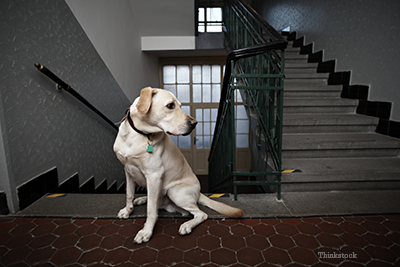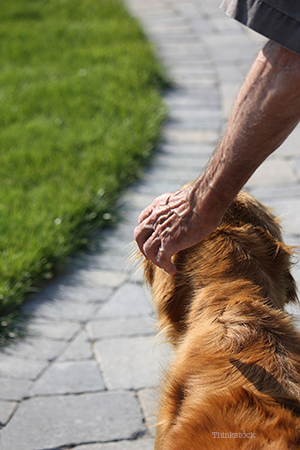
There are many reasons that your dog might develop arthritis. Today we will talk about one possible cause -- immune-mediated polyarthritis (IMPA).
What is immune-mediated polyarthritis?
In the case of this disorder, "poly” refers to the fact that this condition affects more than one joint and “immune-mediated” specifies that the body’s own immune response actually causes the problem. IMPA comes in two forms: erosive (destructive) and non-erosive, so we will further narrow the scope of this discussion to non-erosive IMPA—since that is the most common cause of polyarthritis in dogs.
What causes immune-mediated polyarthritis?
I mentioned earlier that with IMPA your dog’s own immune system is responsible for the inflammation. As you probably know, your immune system responds to infection, but IMPA doesn’t mean that there is an infection inside your dog’s joints. In fact, just the opposite is true. IMPA has no identifiable infectious component in the joints themselves. That said, something happens somewhere in the body that stimulates an antibody response. Those antibodies bind to antigens, and those complexes accumulate in the joint fluid; in turn they set off a sequence of cellular and chemical reactions that result in an inflammatory response.
The list of possible causes is extensive. Certainly infections (viral, bacterial, fungal, etc) elsewhere in the body can be responsible. It can also be a response to:
- Cancers
- Physical traumas
- Drugs
- Vaccine administration
All together these causes can be categorized as reactive IMPA.
There are also breed associated IMPA causes in some dogs (i.e., Akitas, Shar peis, and Bernese Mountain Dogs). Alternatively, IMPA can be a component of an uncommon, immune-disorder called systemic lupus erythematosus. However, if none of these other conditions, or underlying causes, are responsible for IMPA, then it’s classified as idiopathic (we don’t know the cause).
What are the symptoms of immune-mediated polyarthritis?
Obviously, if your dog develops IMPA secondary to another disease process, then the symptoms would be highly variable; but dogs with IMPA can present with:
- Fever
- Inappetance/weight loss
- Lethargy
- Reluctance to move
- Stiffness
- Lameness
- Swollen joints/joint pain (I have seen dogs that simply would not move at all, dogs that nearly did hand stands coming down stairs and many dogs with the classic "walking on tippy toes/eggshells" type of gait.)

It’s important to realize that not all dogs will present with all, or even any, of these symptoms so diagnosis can be difficult.
How is immune-mediated polyarthritis diagnosed?
The definitive test to confirm IMPA is a joint tap and analysis of the fluid sample obtained. You may know someone who receives injections into their joints for chronic arthritis. Removing a bit of joint fluid is pretty much the same process in reverse. The joint tap does need to be performed carefully (so as not to introduce infection where it did not exist) and may require light sedation (especially since by definition this is a POLYarthritis so multiple joints will need to be aspirated). Joint taps are generally well-tolerated, minimally invasive tests.
Since we discussed the fact that this condition can occur secondary to other diseases or disorders, it is important to perform other diagnostic tests including:
- Blood work
- Urinalysis
- Urine cultures
- Radiographs
- Ultrasounds
How is immune-mediated polyarthritis treated?
Because IMPA is the result of an immune response, treatment protocols center on the use of immunosuppressive drugs. These medications can require relatively high doses for initial effect and treatment may need to be continued for relatively long periods of time. Once again, it’s important for your veterinarian to adequately rule out other causes of arthritis (especially infectious ones) and other underlying disorders that require separate treatments. In addition, careful monitoring for adverse effects associated with the immunosuppressive treatment itself is necessary—as are repeat joint taps.
If you have any questions or concerns, you should always visit or call your veterinarian -- they are your best resource to ensure the health and well-being of your pets.
